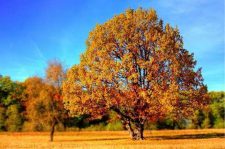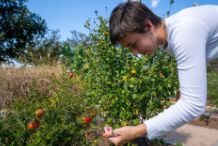Stress is cumulative. In other words, trees and shrubs can be affected by stresses that happened up to several years in the past. Recent stresses in Kansas include sharp drops in temperature in the fall before some trees had hardened off. This occurred in 2019, 2020 and 2022. This was accompanied by last fall and winter’s extremely dry weather which often resulted in damaged root systems. This damaged root system may have been further weakened due to too much rain in some part of the state and continued dry weather in other areas this spring. The excess water in areas that received it harmed root systems due to saturated soils driving out oxygen. Roots need oxygen as much as they need water. Though the roots were able to keep up with moisture demands during the cooler spring weather, they may not be able to keep up when the weather turns hot and dry. Such trees and shrubs may suddenly collapse and die or slough off branches they can no longer support
This does not mean that all of our plants are doomed. Some plants are just better adapted to our tough Kansas conditions and have suffered little to no harm. However, it is a good idea to check the overall health of your trees. So how do you tell?
One of the most important clues in determining the health of your trees is the amount of new growth that tree has produced. A healthy tree should have a minimum of 4 to 6 inches of new growth each year and usually much more. Check branches with the tips in the open and not shaded by the tree itself. Anything less than 4 inches on the majority of branches suggests the tree is under a great deal of stress.
The only thing poor growth tells you is whether a tree is under stress or not. It does not tell you what is causing or has caused poor growth. This year, the most common cause by far is environmental stress caused by the dry fall and winter followed by excessive rain this spring.
So, what do we do for trees under stress? The most important practice is to water as needed.
Ward Upham, Extension Agent




